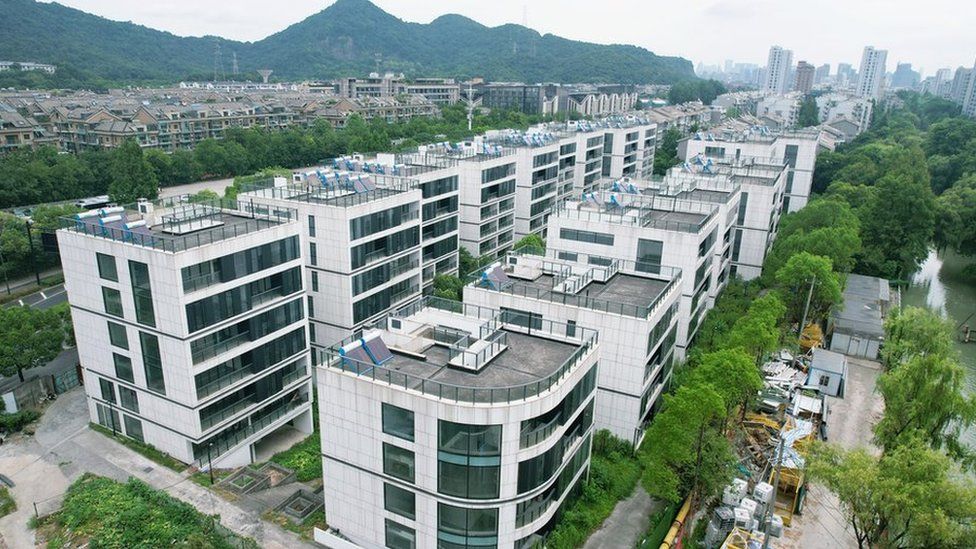Zhongzhi Enterprise Group: China investigates major shadow bank for ‘crimes’
-
Published

Chinese officials have launched an investigation into one of the country’s biggest shadow banks, which has lent billions to real estate firms.
Zhongzhi Enterprise Group (ZEG) has an asset management arm that at its peak reportedly handled more than a trillion yuan ($139bn; £110bn).
Authorities said they are investigating “suspected illegal crimes” against the firm, in a statement on the weekend.
This comes days after reports that ZEG had declared it was insolvent.
The struggling firm reportedly told investors in a letter last week that its liabilities – up to $64bn – had outstripped its assets, now estimated at about $38bn.
While authorities said they had taken “criminal coercive measures” against “many suspects” it’s still unclear who they are, and what role they play in the firm. The company’s founder, Xie Zhikun, died of a heart attack in 2021.
ZEG is a major player in China’s shadow banking industry, a term for a system of lenders, brokers and other credit intermediaries who fall outside the realm of traditional regulated banking. Shadow banking, which is unregulated, is not subject to the same kinds of risk, liquidity and capital restrictions as traditional banks.
China’s shadow banking industry is valued at around $3tn. It often provides a financial lifeline to the country’s property sector. The once-booming industry has been hit by a severe credit crunch, with some of the biggest firms now on the brink of financial collapse.
“For several decades China been chasing this property bubble – and in order to create this bubble, or to fuel growth in China, they needed capital. So they started getting a lot of money from individual investors offering very, very high returns. And it worked for quite a while because the property prices were going up and it’s a win-win for everybody,” says Andrew Collier, a shadow banking expert at Orient Capital Research.
Informal lending has always existed in China’s economy, but shadow banking really took off in the aftermath of the global financial crisis in 2008, when credit was scarce.
Given China’s slowing economy and the crisis in the real estate sector, Mr Collier says the troubles at ZEG may just be the start of a bigger problem: “This is going to spread further into other forms of shadow banks and potentially into the actual real brick-and-mortar banks.”
Embattled property developers currently owe Chinese banks money worth as much as 30% of the banks’ assets.
“That is going to take a long time to unwind,” Mr Collier says.
The latest developments at ZEG has raised concerns of further turmoil in the world’s second-largest economy, after the collapse of property developer Evergrande and more recently the financial woes at Country Garden.
China’s property sector makes up a third of its economic output. That includes houses, rental and brokering services, as well as construction materials and industries producing goods that go into apartments.
The latest figures show that China’s economy expanded by 4.9% in the three months between July and September. That is slower than the previous quarter, when the economy grew by 6.3%.
